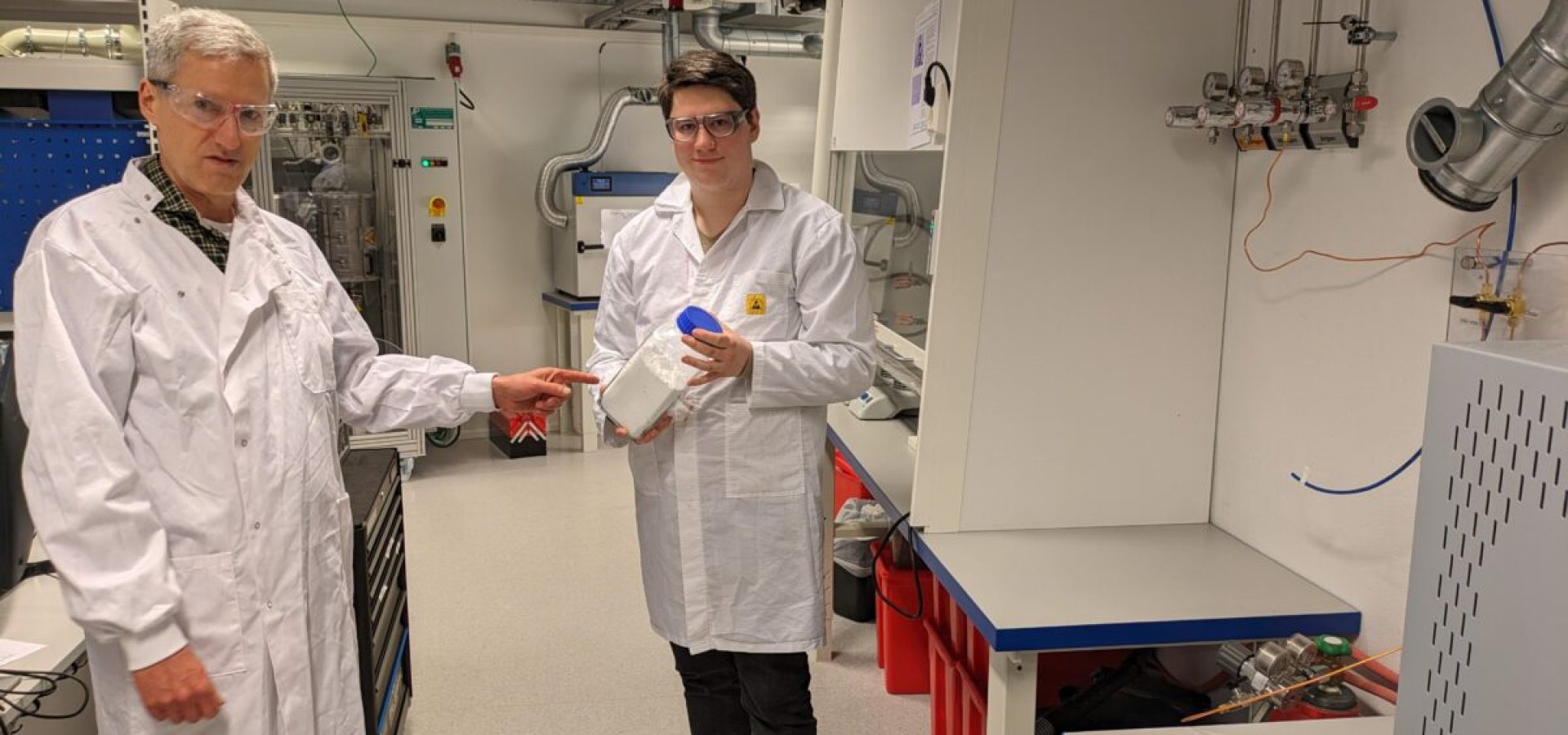Quick Look:
- Photoncycle introduces a cost-effective, hydrogen-based home energy storage in Oslo, offering a solid alternative to traditional batteries.
- Their technology promises 20x the storage density of lithium-ion batteries and eliminates fire and explosion risks.
- With $5.3M in funding, it targets off-grid potentials and heating markets, challenging products like Tesla’s Powerwall.
- CEO Bjørn Brandtzaeg highlights lithium-ion’s cost and efficiency benefits, aiming to revolutionize renewable energy storage.
In the heart of Oslo Science Park, Norway, a pioneering startup named Photoncycle is setting the stage for a radical transformation in how we think about home energy storage. The company is launching its hydrogen-based energy storage solution. Thereby Photoncycle is challenging the status quo but redefining it. Besides, it is also promising an eco-friendly and cost-effective alternative to traditional batteries and liquid hydrogen solutions.
Oslo Startup’s Hydrogen Energy Game-Changer
Photoncycle’s innovation centres around its solid hydrogen-based technology housed within an ammonia synthesis reactor. This ground-breaking technology boasts numerous advantages, such as being cost-effective, that set it apart from existing energy storage solutions. Storage costs for 10,000 kilowatt-hours are pegged at around $1,500, a fraction of the cost of conventional batteries. Furthermore, it offers a storage solution that is 20 times the density of a lithium-ion battery and does not lose current, making it suitable for seasonal storage.
One of the most compelling features of Photoncycle’s technology is its reversible high-temperature fuel cell, which enables hydrogen storage at densities 50% greater than that of liquid hydrogen. Moreover, the solid state of the storage solution ensures it is non-flammable and non-explosive, enhancing its safety profile.
Photoncycle Tackles Tech Hurdles Head-On
However, pioneering such advanced technology does not come without its challenges. Photoncycle faces the task of navigating a complex system that requires expertise across different disciplines. Additionally, the initial power delivery from the system necessitates an intermediary battery for load balancing, adding a layer of complexity to the deployment of their solution.
The market implications of Photoncycle’s technology are vast. It has the potential to make houses effectively go off-grid and challenges existing solutions like Tesla’s Powerwall. Moreover, it targets markets currently reliant on natural gas for heating, proposing a cleaner, more sustainable alternative to gas boilers.
Photoncycle Secures $5.3M for Hydrogen Future
Photoncycle’s journey to innovation has been supported by substantial funding. The startup raised $5.3 million (€5 million) to build its first few power storage devices in Denmark, chosen as its test market. This funding round attracted significant investor interest, highlighting the market’s confidence in Photoncycle’s technology and its potential to disrupt the energy storage sector. Notably, the CEO remains the majority owner post-funding, underscoring the leadership’s commitment to the company’s vision.
Bjørn Brandtzaeg, a key figure behind Photoncycle, has been vocal about the advantages of their technology over conventional solutions. He explained that lithium-ion batteries rely on expensive metals while emphasizing the affordability of their material compared to traditional options. Brandtzaeg also addressed the scepticism surrounding hydrogen-based energy solutions. He explained that Elon Musk’s criticism of hydrogen stems from the inefficiency of converting electricity to hydrogen and back, resulting in significant energy loss. However, Photoncycle’s technology cleverly circumvents this issue by utilizing the excess heat generated for residential heating, thereby enhancing energy efficiency.
Photoncycle Faces Energy Prices & Policy Hurdles
Despite these advancements, Photoncycle is not without external challenges. The current landscape of high energy prices and the increasing demand for solar energy solutions present opportunities and obstacles. Additionally, regulatory hurdles, such as those experienced by homeowners in the Netherlands who faced high costs for exporting electricity, underscore the need for a more flexible and accommodating energy policy to support innovative solutions like Photoncycle’s.
As Photoncycle continues to navigate these challenges and opportunities, its solid hydrogen-based energy storage solution stands as a beacon of innovation in the renewable energy sector. With its compelling advantages, commitment to sustainability, and the potential to transform residential energy storage, Photoncycle is poised to make significant strides in the quest for a greener, more energy-efficient future.










COMMENTS